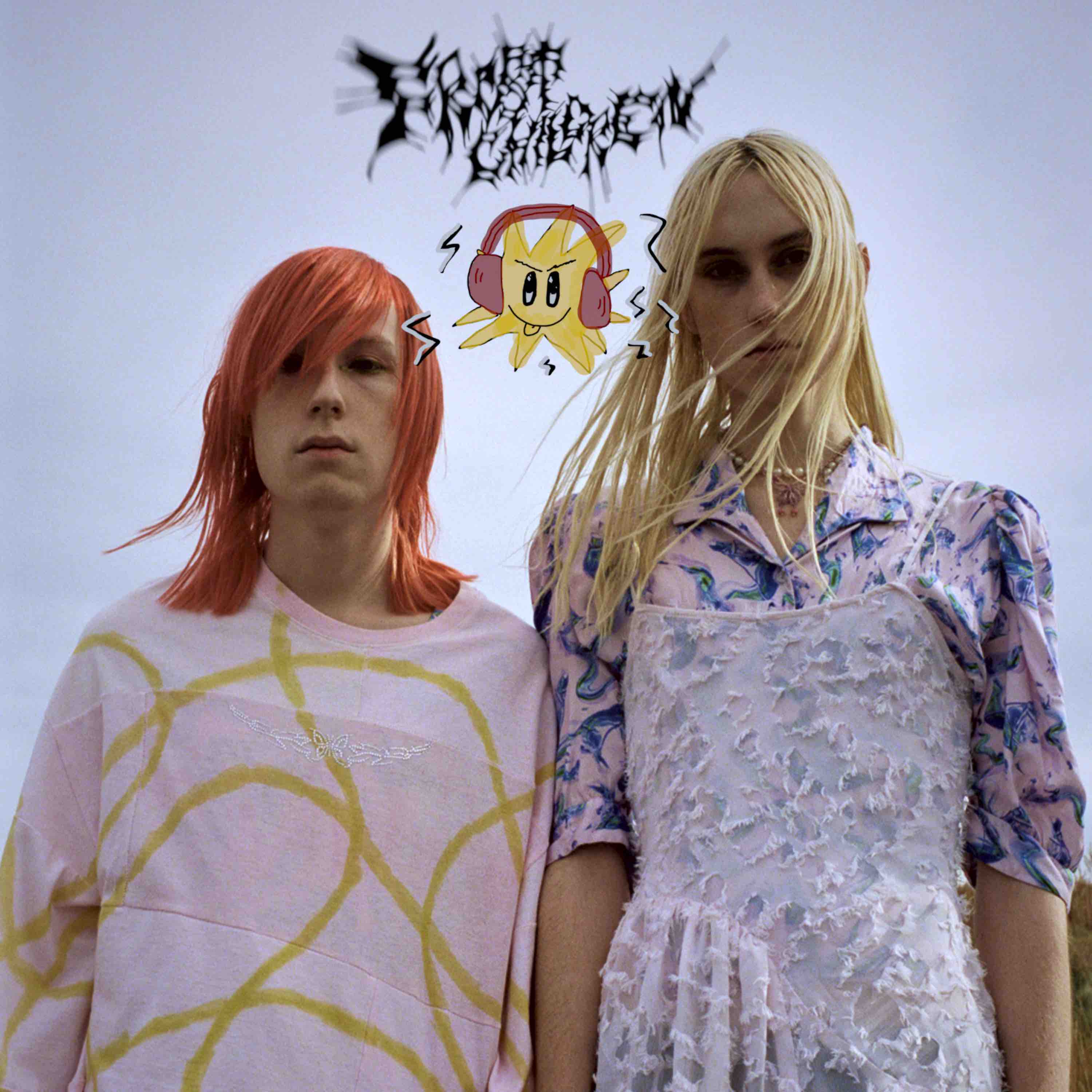Frost Children
SPIRAL
FLEXIBLE DISTRIBUTION
ABOVE THE CURRENT
Frost Children are obnoxious, self-obsessed, painfully stylish, convinced of a sense of greatness they’ve yet to earn, and everything else that I love about bands from New York City. Thanks to the fertile creative community that’s been thriving in the overlap between fashion, underground club culture, queer culture, and the remnants of the Brooklyn DIY scene, the city’s been on a creative upswing lately, and Frost Children have been all over it, both as a pair and separately, playing hyperactive shows, spinning the best clubs, walking Fashion Week runways, and generally acting like the budding rock stars they are.
Last year they released their first proper full-length, Elixir Rejection, which proved that hyperpop—with its oversaturated colors and embrace of cringiness—had a place in a city where music, no matter what genre, tends toward ultracool mono-black aggression. Since then, the pair have been climbing bills across NYC and seemingly working their asses off toward some kind of creative breakthrough. Their new album, SPIRAL, is a quantum leap beyond what they were doing even a year ago, dense with sugary hooks, surprising ideas, and the self-assuredness of a band that’s fully aware of how good it’s getting.
Album opener “Fox Bop” is pure hyperpop rush, a glitched-up hyperkinetic 2020s vision of MTV’s last gasp pre-9/11, smashing together pop-punk, screamo, and the kind of Max Martin knockoff pop single that was de rigueur for B-list celebrities in the early 2000s. The song feels joyfully chaotic, but the construction is carefully plotted, with kaleidoscopic melodies playing off shifting rhythms and genre references that fit together seamlessly. If you had to explain hyperpop to someone in just one track, queue it up.
But Frost Children are too smart and ambitious to settle for shallow Y2K moodboarding. At a moment when hyperpop is reaching the level of popularity where a subgenre’s innovations start to get codified and turned into an easily reproducible product—complete with pre-made sound packs and YouTube tutorials—the pair are pushing the style’s boundaries, challenging its emerging cliches, and broadening its range of influences. “Get What We Want” perfectly revives the punk-metal-breakbeat sound of the unjustly obscure ’90s-era subgenre digital hardcore. “Loser” sounds like a blippy PC Music reworking of Owl City, spiked with a ravey synth solo and a lyrical nod to Beck, while the single “Mayfly” filters The B-52’s through a mall-goth worldview and features a cameo by LA eccentric-pop icon Gary Wilson. Instead of delivering the nonstop synapse-frying mania typical of most hyperpop ventures, the album frequently drifts off into blissed-out electronic psychedelia.
Hyperpop is by its nature placeless, the product of a weird online liminal space where accelerationist neophilia rubs up against recent nostalgia. But while SPIRAL doesn’t sound much like what most people think of as quintessentially New York albums, it reflects a specific feeling that’s been permeating this traumatized city lately, where trans and queer spaces are bursting with the promise of limitless freedom and radical utopian possibilities, and everywhere else feels like something’s about to snap.
SPIRAL’s answer to the situation is pure escapism, but it doesn’t ignore that there are very real things we’re trying to escape. Its sugary high is run through with an anxious streak that touches on everything from gender dysphoria to ecological collapse. My favorite track on the album is “Snail’s Pace,” an MCR-ish pop-punk fantasy about ditching human incarnation for the idyllic, unhurried life of a gastropod, with a cutesy, winking reference to the psychedelic-chic fashion label Collina Strada that’s adopted the pair as muses. The chorus is soaring and instantly catchy: “It’s time to slow it down / Or we’ll burn it to the ground / Let’s listen to what nature has to say.” It was only after listening to it multiple times daily for a few weeks that I realized what it reminds me of: Ted Kaczynski’s Industrial Society and Its Future.







